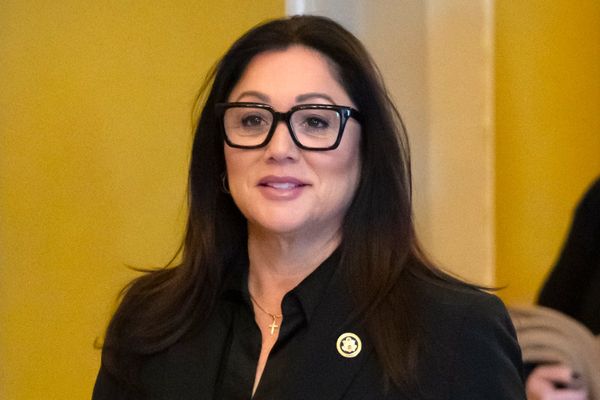
For many older homeowners, a reverse mortgage sounds like a dream solution—unlocking the value of their home without having to sell it. The promise of extra income during retirement is appealing, especially for those on fixed budgets. But beneath the surface, reverse mortgages can carry risks that ripple far beyond one person’s lifetime, impacting heirs and a family’s long-term financial security. When misunderstood or misused, a reverse mortgage can derail a family’s entire financial plan, leaving future generations with debt, limited options, and shattered expectations.
1. A Reverse Mortgage Eats Away at Home Equity
One of the biggest concerns financial experts raise about a reverse mortgage is the way it steadily reduces home equity over time. Each loan advance, combined with accumulating interest and fees, lowers the value left for heirs. Families often expect a home to serve as a cornerstone of inheritance, but this option can significantly diminish that legacy. When the home eventually needs to be sold to repay the loan, little or nothing may remain. This unexpected loss can throw off a family’s financial planning for generations.
2. The Loan Balance Grows Faster Than You Think
Unlike traditional mortgages, a reverse mortgage doesn’t require monthly payments, but the debt doesn’t stay still. Interest and service fees compound over the years, often leaving families shocked at how quickly the balance grows. What seemed like a manageable amount at the start can balloon far beyond the original loan value. When it’s time to settle the loan after the borrower passes away or moves out, heirs may face a much larger debt than expected. This can force rushed decisions that disrupt a family’s broader financial goals.
3. Heirs May Have to Sell the Home to Repay the Loan
Many families assume a beloved home will stay in the family for generations, but a reverse mortgage often makes that impossible. Heirs typically have only a short window of time to pay off the loan once the borrower passes away. If they can’t secure funds or financing quickly, selling the property is usually the only option. This can derail plans for children or grandchildren who hoped to live in or keep the house. A reverse mortgage can turn a family’s most valuable asset into a forced sale.
4. Costs and Fees Reduce the True Benefit
Reverse mortgages come with high upfront costs, insurance premiums, and ongoing fees that eat into the usable funds. Families may believe they’re gaining significant financial relief, but the reality is often less impressive after these deductions. Over time, the overall cost of the loan can outweigh its benefits, particularly if the home’s value doesn’t rise as expected. This reduces available wealth for both the borrower and future heirs. A poorly structured loan can leave a family financially worse off than before.
5. Government Assistance and Tax Plans Can Be Affected
The additional income from a reverse mortgage can unintentionally impact eligibility for certain government benefits like Medicaid or Supplemental Security Income. These changes can cause a family’s overall financial plan to unravel, particularly if they rely on these programs for healthcare costs. Tax implications can also be complex, creating surprises during filing season. Without careful planning, what seems like helpful extra cash may lead to reduced benefits and unexpected costs. Consulting professionals before signing a reverse mortgage is essential to avoid these pitfalls.
6. Future Housing Needs May Be Overlooked
A reverse mortgage locks homeowners into a property that may not suit their needs long-term. If health changes require assisted living or relocation, the outstanding loan must often be repaid quickly, adding financial stress during an already challenging time. Families may need to tap into other savings or sell assets unexpectedly to cover these costs. This chain reaction can derail financial plans built on the assumption that the home’s value was secure. A lack of flexibility is one of the most underestimated risks of this type of loan.
7. Family Tensions and Legal Disputes Can Arise
Reverse mortgages often create confusion and conflict among heirs who were unaware of or didn’t fully understand the loan terms. When expected inheritance vanishes or a home must be sold, emotions can run high, leading to disputes or even legal battles. This adds emotional strain to an already difficult period of loss. Poor communication about a reverse mortgage can divide families and derail shared financial goals. Transparency is crucial to preventing misunderstandings that damage relationships and finances.
Safeguarding Your Family’s Financial Future
While a reverse mortgage can provide short-term relief, the long-term consequences often outweigh the benefits. Families relying on a home for future security may find their entire financial plan disrupted by shrinking equity, forced sales, and unexpected debts. Before committing to this type of loan, it’s essential to weigh all options, seek professional advice, and consider how it affects heirs. Making informed choices today can protect both your retirement comfort and your family’s wealth tomorrow.
Have you or someone you know experienced challenges with a reverse mortgage? What advice would you share to help families protect their financial future? Join the discussion in the comments below!
Read More:
10 Financial Questions That Could Undo Your Entire Retirement Plan
10 Things People Don’t Realize Will Be Taxed After They Die
The post How a Reverse Mortgage Can Derail a Family’s Entire Financial Plan appeared first on The Free Financial Advisor.







